#southern monarch
Text

The Southern Monarch of South America. Among the moths and butterflies. 1908.
Internet Archive
#butterfly#butterflies#insects#zoology#nature illustration#southern monarch#nemfrog#1908#early 1900s
714 notes
·
View notes
Text

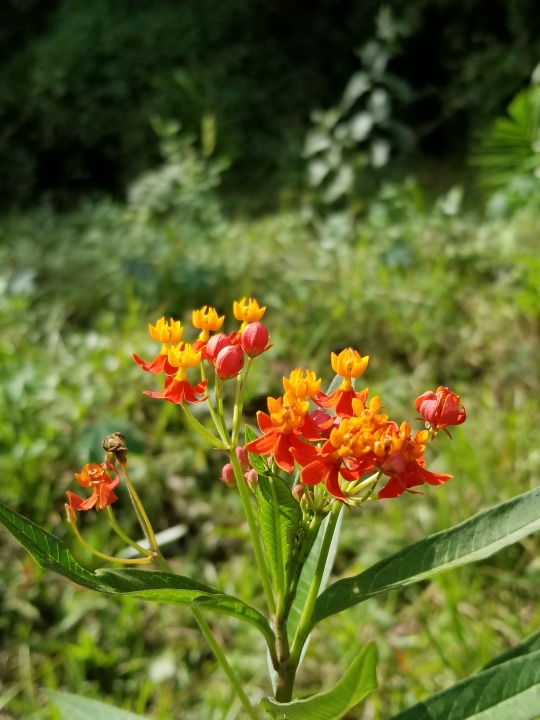

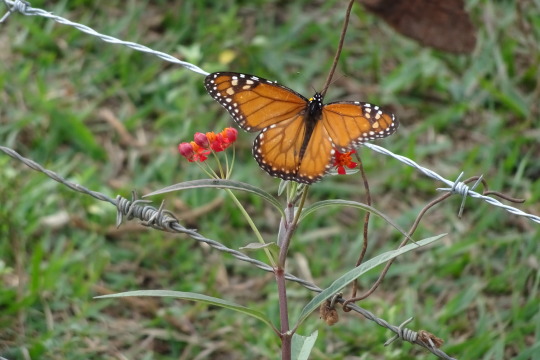
Asclepias curassavica, tropical milkweed, has gained a bit of a bad name in North America, since where it's not native, its perennial lifecycle can result in greater monarch parasite loads. But where it's native in South America, this beautiful milkweed is vital for monarchs and other species of Danaus butterfly, such as the southern monarch shown here.
53 notes
·
View notes
Photo

Monarch
Danaus plexippus
Nymphalidae
Photograph taken on August 20, 2022, at Marmora and Lake, Ontario, Canada.
#wildflowers of southern ontario#Monarch#monarch caterpillar#caterpillar#Danaus plexippus#Danaus#Nymphalidae#insect#Marmora and Lake#marmora#Ontario#Canada
10 notes
·
View notes
Text
me physically gagging when i'm forced to see any of sansa's characterization from s8
#❆ 𝐚 𝐦𝐚𝐢𝐝 𝐚𝐬 𝐫𝐞𝐝 𝐚𝐬 𝐚𝐮𝐭𝐮𝐦𝐧.﹚ooc.#s7 had it's flaws but jeeesh#like...would sansa be wary of daenerys? of course!#upset with jon for submitting to another southern monarch because he has the hots for her? absolutely!!#would she scheme against her own brother because she doesn't think he's fit to rule or make trusted decisions? no!! the fuck!!#nor would she ever break a promise to him like that. especially not one sworn under a weirwood.#sansa doesn't have the ambition or desire to rule after king's landing. all she wants is to be home and for her home to be Safe#she would do what she thinks is best for winterfell in a heartbeat. and you know what? that includes ensuring their survival and jon's#leadership because she knows he's good at it! that he has their best interests at heart!!#shaking d&d like a pair of snow globes i really hate
6 notes
·
View notes
Text
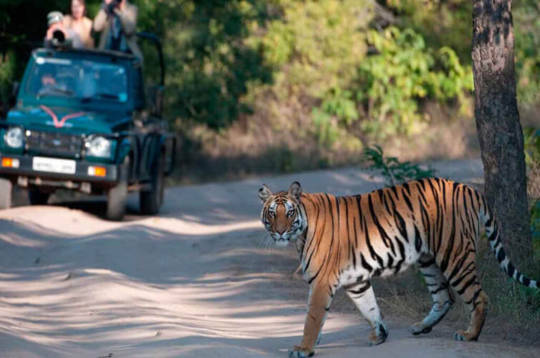
Pench Tiger Safari
#The river Pench divides Pench National Park#which is located in the southern portions of the Satpura range#into virtually two equal halves. Over 286 native and migratory birds#as well as the monarch of Indian forests#the Royal Bengal Tiger#call this lush expanse home.#With its regal tigers and a variety of other wild animals and birds#Pench National Park will bring back the thrill of seeing 'Mowgli battle Sher Khan' in the world-famous serial The Jungle Book. The wildlife#particularly for its stunning scenery and thrilling night safaris. From 5 a.m. until 7 p.m.#the Pench National Park is open to tourists. The wildlife refuge is conveniently accessible by rail#http://www.mpforest.co.in/pench-national-park-safari.html
2 notes
·
View notes
Text


#out there the 1k#ott1k#inspiration#Dain Nirenthe Kala the monarch and direct descendent of the Kala line.#Mother of Siffon Kala#Dain is like a queen.#Dyne Edrin - the king - married into her family from an affluent family in the southern city of Cos Arda#Together they rule the planet#Ilthall#a ringed planet of rain and small seas and valleys and prairies and low mountains
1 note
·
View note
Text

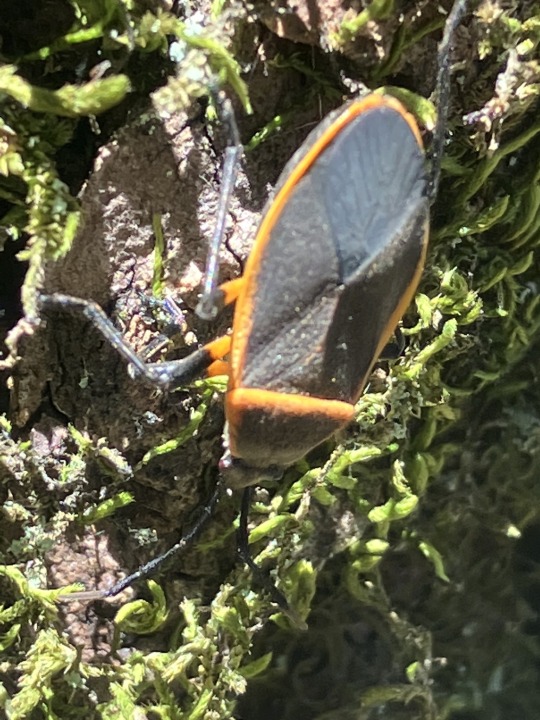
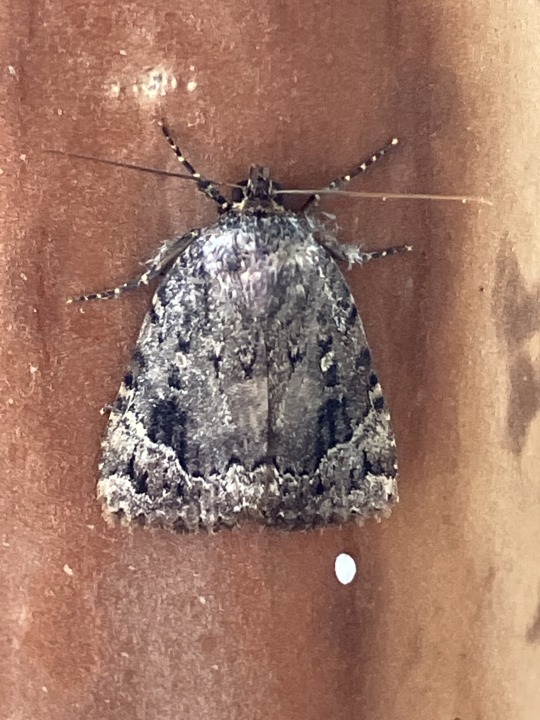
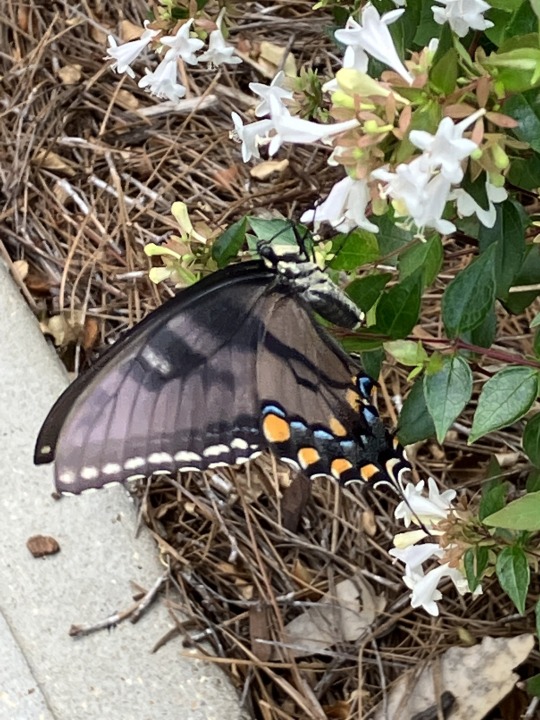

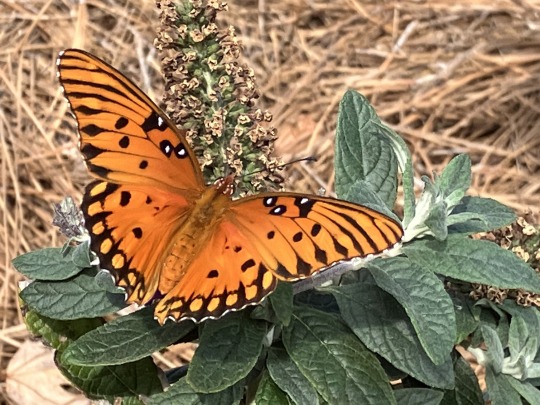
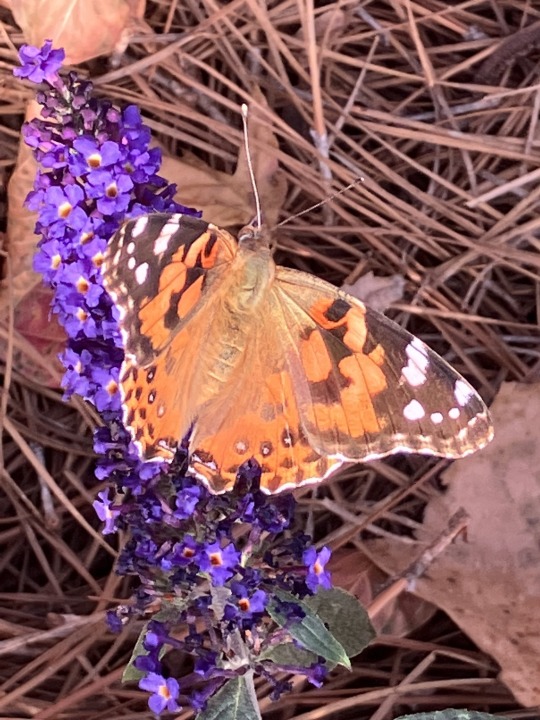

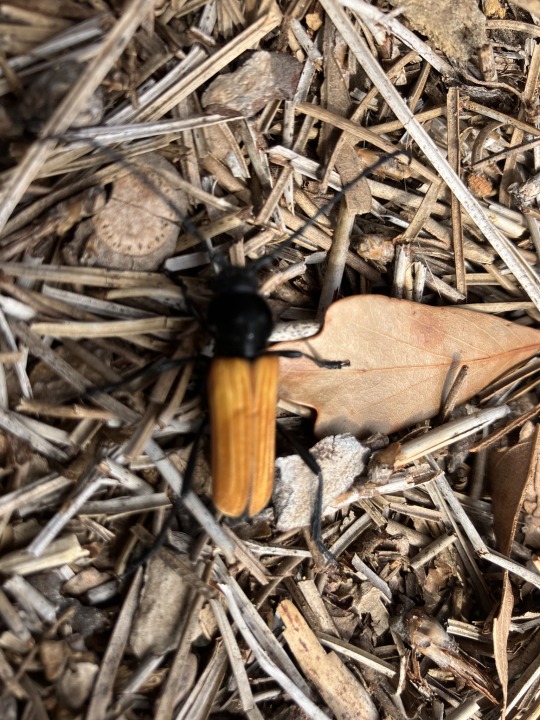
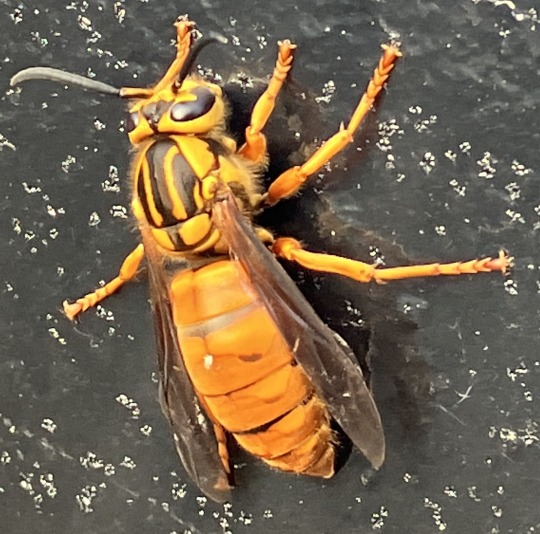
There aren't many upsides to living in Mississippi, but insect photography is one of them.
#insects#insect photography#bugs#moths#butterflies#beetles#wasps#leaf-footed bug#swallowtail butterfly#fritillary#painted lady butterfly#monarch butterfly#southern yellowjacket#nature
0 notes
Text
A list of things (in no order) they BETTER include in the movie
- Rule #1: Don't Get Caught
- "And they are not khakis they're chinos. Khakis are for white people."
- The magazine page
- Zahra stealing Alex's phone and shoving it in her bra after the emails get leaked
- "Numbers on me being into dudes?"
- Get Low at the new years gala (bonus points for "Fuck it up, vato!")
- Alex blowing a beer bottle
- If I don't hear Bea's emotional depth pie speech I'll riot
- "America: He is my choice."
- "Now, I'm standing here, and I'm thinking about it... A reliable, hardworking, honest, Southern Democrat versus corruption, and maliciousness, and hate. And one big state full of honest people, sick as hell of beinf lied to."
- "Say good morning to your strumpet, Henry" "Good morning strumpet"
- Honestly the entire facetime with Pez while him and Henry are in Wales--
- Idk man i wanna see dc dykes on bikes chase westboro baptish church goers down the street
- "I am the First Son of the United States, and I'm bisexual. History will remember us."
- "I've seen Jurassic Park. Did you know birds are directly descended from raptors? That's a scientific fact. Raptors in my bedroom, Henry. And you want me to go to sleep like they're not gonna bust out of their enclosures and take over the island the minute I close my eyes? Okay. Maybe your white ass."
- "i want to see a cage match between your grandmother and this fucking ghoul running against my mom"
- The "Sexual Experimentation With Foreign Monarchs: A Gray Area" powerpoint
- "Sería una mentira, porque no sería èl."
- "Dear Thisbe, I wish there weren't a wall. Love, Pyramus"
- "Oh I'm terribly sorry Pip! So awfully clumsy, I think all that cocaine I did must have done a number on my reflexes!"
- Them dancing to Your Song in the A&V
- Alex NEEDS to fall into that rosebush
- "Hey. We won." "Yeah. We won."
- "But that would be-" "Yes Alex, the day we met, nothing gets past you does it? 'What about you' he asks, as if he doesn't know-"
#rwrb#red white and royal blue#red white and royal blue movie#alex claremont diaz#henry fox mountchristen windsor#firstprince#🇬🇧🇺🇸 rwrb posting
2K notes
·
View notes
Note
Started watching lok and they spent so much time making mako fumble beautiful women they forgot to make non-benders oppressed
LMFAO yeah book 1 is such a mess. I think they were trying to illustrate that amon is a charlatan who used the plight of the people to disguise his rise to power through framing it as a genuine social movement for equality, but it doesn’t actually make any sense because “non-benders” and “benders” broadly speaking do not constitute coherent classes. the class dynamics in republic city operate along axes of neocolonialism and neoliberalism, so it’s not a matter of non-benders or benders having more power, it’s a matter of 1) who stands to benefit from living in a fire nation neocolony on earth kingdom land (descendants of original fire nation settlers) 2) who controls the means of production (hiroshi ford, primarily!). the sato family are not benders, but they are shown to be far more powerful than mako and bolin, who are literally professional benders, because they are industrialists who control most of the technology in/of the city. in fact, we constantly see mako and bolin’s bending-labor being exploited, whether in dangerous athletic arenas, doing dangerous work for gangs, dangerous factory work, etc. just due to the concrete examples we are shown, if anything, non-benders largely live in wealth, while benders largely live in poverty.
but this evidence, too, is anecdotal, and i don’t believe it, because again, “non-bender” is not a coherent class marker/identity. king kuei is the monarch of the world’s largest nation who has spent his entire life so sheltered that he wasn’t even aware that the world had been devastated by a century of fire nation imperialism. sokka is a colonized subject who spent his entire childhood internalizing the notion that it was his duty to die as a martyr to save his sister who has been valorized due to her unique position as the last waterbender of the southern tribe (which, if you couldn’t tell, is the result of a targeted genocide, not some inherently distinguished qualia that designates benders as ontologically superior). the fact that neither of these characters are benders does not align them socially or politically.
moreover, the reason that katara’s waterbending was valorized within her tribe was due to the scarcity of waterbenders as a result of their systemic elimination. waterbending represents a unique cultural artform to their people (it’s actually one of the first things the show establishes) and only katara possesses the unique capability to continue that legacy. due to the fire nation imperialist project, katara being a waterbender puts a target on her back; yes, it empowers her personally and culturally, but materially it constitutes another facet of her oppression — much like haru as an earthbender in occupied territory, and much like aang as the last airbender. meanwhile, firebenders are materially empowered due to their imperialist dogma that establishes firepower as the inherently superior form of bending / technology of conquest. as atla establishes, bending is political due to its spiritual and cultural value, but is politicized primarily with regards to colonial power dynamics, and thus not all benders constitute a coherent class, certainly not as they would either function to oppress or be oppressed by non-benders.
i’ve seen a lot of people claim that amon represents communism, or more specifically, maoism, which is bogus for many reasons, but most principally is the fact that he quite literally never addresses the issues that are actually oppressing certain people of republic city: namely, capitalism. “oh but he knows he’s bullshitting, he’s just telling people what they want to hear because he’s a populist dictator who just wants to seize power over republic city!” okay, so in the most generous reading of amon, he’s trump (I know lok is an obama era text, but just go with me here): he’s a member of an “oppressive” class disguising himself as a man of the people to appeal to a broad demographic by scapegoating an arbitrary group of people through tactics of fearmongering (“benders will kill you and your family…for reasons”) because he’s simply a power-hungry conman. he knows that neither non-benders nor benders are materially oppressed, and is simply exploiting the intuitive logic that it must suck to be a non-bender in a world full of people with literal superpowers for his own benefit.
and he’s doing all this …. because he had an abusive father??? or something???? nothing about his motivations or ideology is coherent. when jet manipulates katara and aang into helping them fill the reservoir, it’s with the explicit intention to flood an occupied village as a mode of anticolonial resistance. when long feng manipulates kuei into being his malleable puppet, it’s with the express purpose of controlling the entire earth kingdom from the shadows. amon wants power…because? maybe i’m just remembering key details from his tragic backstory (granted, it’s been a while since i’ve rewatched lok), but i can’t remember amon ever expressing a coherent ideology or motivation besides maybe spite? and either way, his role as a populist dictator villain who employs the signifiers of the chinese cultural revolution is pretty obviously in poor taste when the blatantly pressing issues of capitalist and neocolonial exploitation are never actually addressed and critiqued beyond the bogeyman anarchist terrorists and the fascist ethnonationalist pointing out that the status quo is bad, maybe? to which they must all ultimately be made to surrender to the effusive, all-powerful glory of impotent liberalism. whatever. at least we have korrasami.
#bakedbeanchan#asks#lok crit#amon#analysis#but at least……. we have korrasami……. and korra alone……… and uhh…..ming hua’s wet ass pussy
205 notes
·
View notes
Text
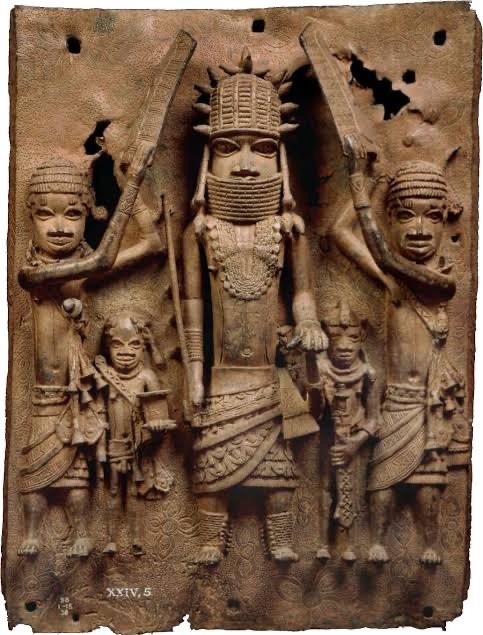
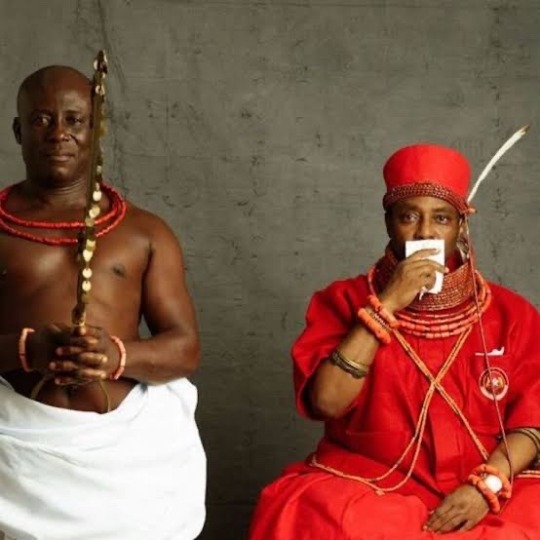
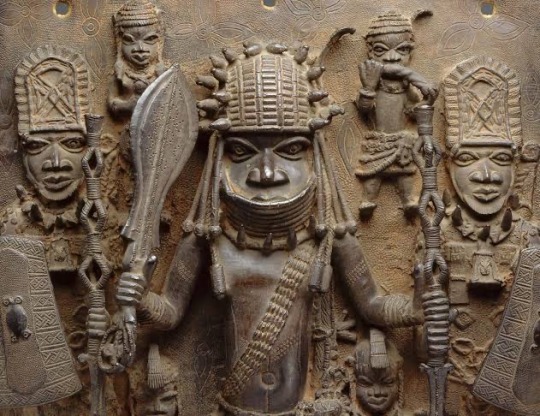
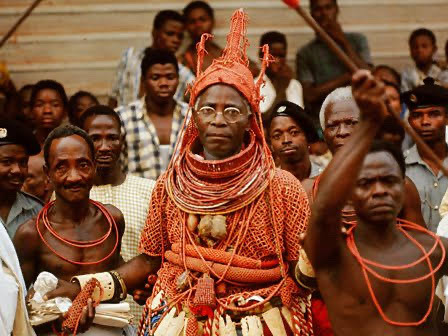
Black history is not slavery
Slavery is not the only history of black Black history goes deeper than slave trade
This is a message for my black brothers and sisters
Today I will be talking about the people of benin
The historical kingdom of Benin was established in the forested region of West Africa in the 1200s C.E. According to history, the Edo people of southern Nigeria founded Benin. They no longer wanted to be ruled by their kings, known as the ogisos. They asked a prince from Ife, an important West African kingdom, to take control. The first oba, or king, in Benin was Eweka. He was the son of the prince from Ife.The kingdom reached its greatest power and size under Oba Ewuare the Great. He expanded the kingdom and improved the capital, present-day Benin City; the city was defined by massive walls. The height of power for Benin’s monarchs began during this period. To honor the powerful obas, the people of Benin participated in many rituals that expressed their devotion and loyalty, including human sacrifices.Artists of the Benin Kingdom were well known for working in many materials, particularly brass, wood, and ivory. They were famous for their bas-relief sculptures, particularly plaques, and life-size head sculptures. The plaques typically portrayed historical events, and the heads were often naturalistic and life size. Artisans also carved many different ivory objects, including masks and, for their European trade partners, salt cellars.The success of Benin was fueled by its lively trade. Tradesmen and artisans from Benin developed relationships with the Portuguese, who sought after the kingdom’s artwork, gold, ivory, and pepper. In the early modern era, Benin was also heavily involved in the West African slave trade. They would capture men, women, and children from rival peoples and sell them into slavery to European and American buyers. This trade provided a significant source of wealth for the kingdom.Benin began to lose power during the 1800s, as royal family members fought for power and control of the throne. Civil wars broke out, dealing a significant blow to both Benin’s administration as well as its economy. In its weakened state, Benin struggled to resist foreign interference in its trading network, particularly by the British. A desire for control over West African trade and territory ultimately led to a British invasion of Benin in 1897. Benin City was burned by the British, who then made the kingdom part of British Nigeria (which became Nigeria after the country gained independence in 1960). After that time, the kingdom no longer played a governing role in West Africa. However, even today, the oba still serves in Benin City as a government advisor.
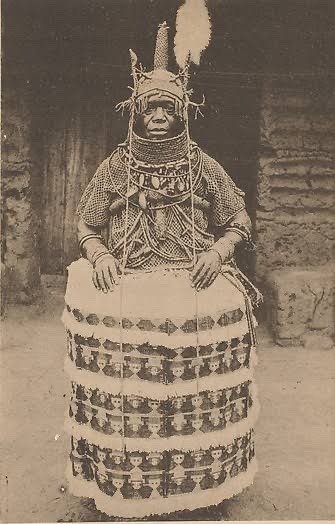
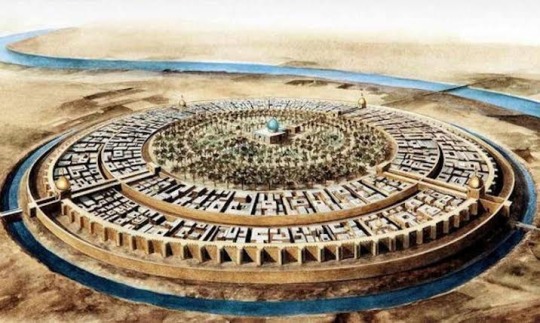
#life#culture#black history#history#blm blacklivesmatter#aesthetic#generations from exile tribe#genshin fanart#sculpture#nigeria#heritage#transgender#traditional media
718 notes
·
View notes
Text
on “Zutara is a colonizer x colonized ship”
“Colonizer” is not an ontological category. It’s a role within a specific geopolitical power dynamic, and therefore it can change — or even cease to exist — when these geopolitical power dynamics change (like when, idk, a Gaang of teenagers overthrow a genocidal imperialist colonial regime to install a new monarch who vows to stop the genocide and imperialism and colonization and bring about an era of love and peace)
I know it’s a bad faith anti argument, but it bothers me more than most anti Zutara arguments because I think it is indicative of a very pessimistic, defeatist attitude about power relations in general. Any type of oppressor is not a fixed role. It’s subject to change, and indeed ATLA’s message is that it’s your obligation — and your right, your power — to fight for that change, even if you’re just a ragtag group of kids against a whole empire. Calling Zuko a colonizer is not only a baffling misunderstanding of what colonization is, it also implies that even when you successfully challenge and restructure oppressive power dynamics, old sins cast long enough shadows that there is nothing you can do to be free of them. It’s one thing to acknowledge the complexities of a close relationship with someone who used to benefit from your oppression (indeed that’s kind of the whole arc of The Southern Raiders where Katara confronts the ways in which she has projected the trauma of her mother’s murder at the hands of the Fire Nation onto Zuko, who is now a valued ally). It’s quite another to claim that neither of you can ever escape the ontological categories of oppressor vs victim even if you’ve both changed the world.
#Also the water tribes were never even fucking colonies so even the premise is wrong but other folks have talked about that#The colonizer does not exist without the colonized that’s like anticolonialism 101#source: my anticolonialism seminar where I first read The Colonizer and the Colonized#Zutara#Zutara meta#atla fandom critical#Pro Zutara#anti anti Zutara#look what the antis made me do they made me type anti twice#my meta#ATLA colonization discourse#which apparently warrants a tag now lmao
226 notes
·
View notes
Text
WIP Wednesday: "Why The Wren is Queen of Birds"
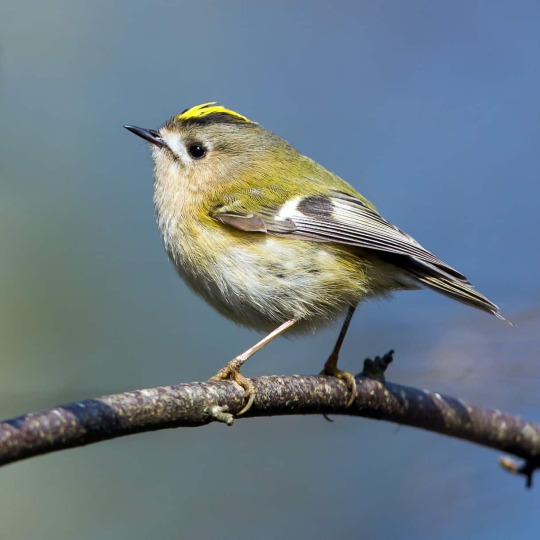
From the upcoming Tales of the Five #3: The Librarian: a fairy tale* of southern Arlen.
***
In the south of our land, in the mountain-wall’s shadow near Dhiil, they tell this tale of the ancient days after the Great Dark was downthrown and destroyed at last.
In that time the Goddess first began to send humankind royal rulers to mediate between the folk of those first realms and the land on which they depended for their lives. And in those days the birds of the world came together in a great parliament and decided they too should have a King or Queen. "For we’re a far older people than the humans are," said some among the birds, "and far more numerous and varied in our kinds. So by rights we ought to have a ruler over us such as the Mistress of the World has given these new young creatures, to show forth our age in the world and our importance in it."
And no sooner had this been agreed than the birds began to squabble over who should be their new King or Queen.
"It should be the strongest of birds," said the great mountain vulture. "It should be the most beautiful of birds," said the rainbow-feathered lyretail. "It should be the bird that sings best, the sweetest-voiced," said the melodious nightingale. "It should be the sharpest-eyed of birds," said the passager-falcon.
A long time the quarrel went on, but no decision could be reached. Finally a hedge-sparrow said, "The owl is said to be wise, and has not spoken. Let us ask the owl." And that seemed a good enough idea that the birds went straight to the great crested owl, who sat in a tree hard by where the parliament had been taking place, dozing the day away.
The birds woke the owl and said, "Wise one, how shall we choose what bird among us shall be our Queen or King?"
And the owl looked south and north, and west and east, and over its own shoulder, seeking the answer. Finally it said, "The deepest truth of being a bird is that one flies. Therefore let the Monarch of Birds be the one who flies the highest."
And this advice seemed good to all the birds gathered there in parliament. So it was agreed and then sung and cried far and wide for every bird to hear, both great and small; from the great dragon-eagle to the tiny wren.
The wren in her holly-bush, when she heard this news, smiled to herself. "There are more truths to being a bird than flight," she said, "and more kinds of wisdom than are owned by owls. I have an idea which bird may yet fly highest!"
So the day came when all the birds of the world assembled, and all flew to see which one might fly the highest. Up and up they went in great waves of flight, so that the sky grew dark with them, and in their dwellings humans looked up in alarm, saying "What devilry is the Shadow planning now?" For the Dark was only a few lives of mankind gone, and humans’ fear of Its malice was greater than their wisdom.
However, the birds cared nothing for the fears of human beings, and only strove to see who would rise highest. The birds of field and hedge dropped away first, and then the birds of the treetops and the tall forests. A while longer the birds of the upper sky rose up together, the hawks and eagles and the mightiest seabirds. But one by one they all fell back and could fly no more through air that was too thin and cold for them; and at last the only one who remained was the greatest of eagles, a Darthene dragon-eagle, grey-pinioned and golden-eyed with a spiky crown of feathers.**
And that dragon-eagle beat his way up and up until it seemed the blue of the sky was starting to go darker and the horizon might to a keen eye be starting to show the shadow of a curve, and even for a bird who was so often neighbor to the great heights, breathing had become hard. And looking around and seeing no other bird had kept pace, the dragon-eagle cried out in triumph and folded his wings to fall back toward the world and his waiting kingship. But as his wings folded down, a tiny grey shape started up from between them and flew, and kept flying upwards. It was the wren, who had hidden herself among the dragon-eagle’s feathers, and now flew higher than he—a tall tree’s worth of higher; two trees’ worth; five.
The dragon-eagle was nigh spent, and could not follow her. He let himself fall back to earth until he knew there would be enough air under his wings for them to bite into. Then he made his way swiftly to the place that had been set aside for the crowning of the ruler of birds. But not too far behind him came the wren, falling as fast as he into the upper airs, and finally to the grove and glade where the representatives of the bird-parliament awaited the winner.
Great was their confusion when the wren came down to perch on a tree-branch in the center of the glade and cry, "I am your ruler, for I flew the highest!" And down in his turn came the dragon-eagle, full of wrath, though he kept his dignity about him. "She flew higher than I," he said. "That much is true. But I flew all the way on my own wings from a treetop perch right up into the great heights where the sky grows dark and the air grows thin. And all that long way the wren hid amidst the down of my back, so that I carried both myself and her all that way. The feat of the highest flight is therefore far more mine than hers, and I am your king by right!"
And hearing these two claims, the birds in parliament began to squabble and argue the merits of each side, until the whole place sounded like a great noisy rookery at sunset. Yet they could find neither answer nor decision; so at last they turned to the Goddess.
As always, where many call upon Her together, there She is, whether She be seen or no. And here, since there was need, swiftly She was seen. To them She looked of course like a bird, mighty and radiant: and all bowed in awe before Her. But the awe lasted only a short while, and in little time the birds began to quarrel before Her over the issue they had begged Her to resolve.
Quite soon, "Peace, my dears, have pity! You’ll deafen me with your noise," the Goddess said, when the commotion had swollen to the point where even a deity might not hear Herself think. "Set out your case, now, so that I may judge."
So they laid it all out before Her, glossing nothing over and leaving nothing out. Then all waited in breathless stillness for Her verdict.
Due consideration She gave their issue; and then spoke and said, "The agreement you all made was that the bird who flew highest should be set as ruler above you. No one said that the bird who flew highest must also fly all the way."
"But that should have been understood!" the dragon-eagle cried in his wrath.
"It may often seem after the fact that many things should have been understood from the start," the Goddess said. "But that is not how it goes. When a game is to be rightly played, all the rules must be agreed first. When the game is begun, and won, it must be judged by what rules were decided before it began: not ones thought of after it’s done." And She looked sorrowful. "I was first to learn that rule. Now, it seems, comes your turn."
And She rose up in Her majesty before them and said, "By the rules of the contest you set for yourselves, the Wren is now your ruler." And as the Wren bowed down before Her, the Goddess reached out a pinion and with one primary-feather brushed the top of the wren’s head, which to this day bears the little gold mark She put there—the sign of its new-made royalty, and the Kingdoms’ first crown.
“Here then behold your Queen,’ said the Goddess to the parliament assembled. And some birds bowed to their new-made ruler, and some did not, grumbling among themselves and glaring at the Wren—as they dared not glare at the Goddess, preferring to think of Her as blameless, and as one who had been befooled, even as the Shadow had befooled Her when the world first began.
And soon enough the Wren began to issue commands to her subjects, telling the ravens, "Your harsh voices were better not lifted in song," and saying to the nightingales, "Your voices are fair but you should be still after dark so that others can sleep," and to the sparrowhawks, "You must cease your preying on small birds and confine yourselves to rats and conies and other such vermin." In short, she put forth many edicts that either seemed to favor her own tribe of birds, or were made to show that she by her fledgling royalty might command what she liked whether there was much sense in it or not.
It was not long before the birds began to chafe at this. And one day the Wren saw a carrion-crow swoop down on a pond, where it snapped up a duckling and swallowed it whole; and the Wren became wroth and cried out, "I pronounce you cast out from among your kind for devouring the living instead of the dead!" And no sooner had the scaldcrow gobbled the duckling down than he stared at the Wren on the willow-branch where she sat, and cawed, "Pronounce what you like, cheating little hedge-peeper; you have no power to make me pay you any mind!"
“I am your Queen, made so by the Goddess, and you must obey me!" the Wren shouted in a fury. But the carrion-crow laughed at her and said, "The only thing I need obey is my stomach, which says you will make a good end to my nunch!" And he flew at the Wren, so that only hardly did she escape from him by diving into a hole in a nearby hedge-bank.
Soon word got about that the Wren had no power to enforce her decrees, and that they only had force when the will of those she commanded allowed it. And quickly she found herself being mocked or ignored, and sometimes attacked and pursued by other birds who hated her and tried to kill her. Some of these said "What fools thought a ruler over us would be a good idea? Let’s have no more of this nonsense, but be free!", and others, "Once this monarch is gone, who knows, the next one may be better."
In no long time the Wren wearied of this strife. At last she took her grievance to the Goddess. "Great Mistress and Queen of the World," the Wren cried to Her, "the birds will not acknowledge me to be their ruler! They hate me because I was cleverer than they."
“It is a hard thing to learn," said the Goddess, “that sometimes cleverness is not enough… or too much.” And She looked sorrowful. “I grieve that you have had to learn it so.”
“All this could be put right,” said the Wren, “if only You would simply give me the power to make them do what I command.”
“That would be a change to the agreement that, unchanged, made you Queen in the first place,” the Goddess said. “My sorrow that your change cannot be made so after the fact any more than the Dragon-eagle’s could be. You’ve built yourself this nest, dear one. Now you must lodge in it and hatch out what chicks you can.” And She vanished away.
And so it is that the Wren is yet held to be Queen of Birds, for though she was never deposed, no other bird was afterward ever found wise (or foolish) enough to hold the office, not even the owl. The only court the Wren Queen holds is hidden away in holes and hedges, to avoid her enemies’ sight, and there she raises her chicks on worms and bugs in a nest no bigger than a child’s goblet. Her only state is the flash of gold on her crest, and in all other ways she goes as quietly as she may—in all ways the smallest and plainest of all birds. Whether she ever came to understand that royalty rightly exercised needs far more than mere cleverness, and needs the heart at as much as the mind, if not more, no one can say. For in this making of the world, even the Goddess who made all things has no power to make even the smallest creature wise against its will. In Her next making, may all things run more smoothly!
So they tell the tale in the high South; and in the low North, where folly resides, who knows what tale they tell? But now this one is done.
*Using the class-name here as the closest match to this kind of story in the Kingdoms, which lacks beings corresponding to fairies.
**On our Earth, Harpia harpyja, the harpy eagle.
249 notes
·
View notes
Text
Happy 600th birthday! Per molts anys!
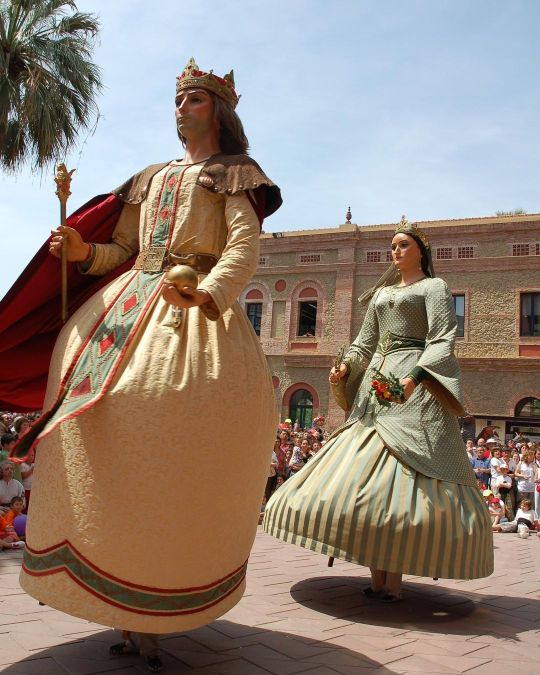
Giants are one of the most iconic figures in Catalan culture. Each town, city, or neighbourhood has their own couple of giant hollow figures that usually represent the mythical founders of the town or characters from local legends. People join the group to carry them and make them spin and dance on the streets on the days of local festivities, to the sound of live traditional Catalan festive music.
Giants don't exist only in Catalan culture, they're also present in other parts of Western Europe like Belgium, France, Portugal, Sicily, Southern Italy, the Basque Country, and some parts of Aragon and Castilla (Spain).
But this year, we are celebrating: the earliest ever written document anywhere in the world that mentions a giant figure dates from 1424 and talks about the Barcelona giants that danced in the Corpus festivity. This assures us that giants have been part of Barcelona's festivities for at least 600 years. Then, the giants were King David and the Giant (characters from the Bible), but with time they changed a bit and by the 1500s they were a king and a queen, who came to be identified with the king James I and the queen Violant of Hungary, the most iconic and important monarchs in Catalan history.
However, since they symbolise people from Catalan history, the giants were repressed by the Spanish fascist dictatorships of Primo de Rivera and Francisco Franco. These regimes had the aim of exterminating Catalan culture. They banned and persecuted the Catalan language and identity and many cultural celebrations of Catalan people, such as banning some songs and holidays. For this reason, the giants were forced to be renamed Isabella and Ferdinand and pretend like they represented the Catholic Kings, two key figures of Spanish history. When the dictatorship ended, they became Jaume I and Violant again.
The figures of the Barcelona city giants used nowadays aren't the same ones as 600 years ago, of course. The figures get copied into new ones when it's necessary. The ones used now were made in 1991 copying the previous figures, made in 1921.
Giants are adored by kids, and the Barcelona city male giant (gegant de la Ciutat) and the giant from Santa Maria del Pi parish of Barcelona (gegant del Pi) are also the main characters of one of the most popular traditional children's songs in Catalonia.
We love to see them continue being as popular as ever. Yesterday, they celebrated their anniversary with a meeting of giants from all the neighbourhoods of Barcelona and well as from other cities and towns. More than 600 giants gathered in Barcelona to dance together for the Barcelona city giants anniversary!
#barcelona#catalunya#tradicions#història#1400s#medieval#middle ages#folk culture#cultures#anthropology#catalan#catalonia#europe#ethnography#travel#corpus#culture
96 notes
·
View notes
Text
On April 21, Ali Hussein Julood, a 21-year-old living in the Iraqi town of Rumaila, on the outskirts of one of the world’s largest oil fields, died from leukaemia. He was told by doctors that pollution from gas flared in the nearby field, which is operated by British Petroleum (BP), had likely caused his cancer. “Gas flaring” is a low-cost procedure used by oil companies to burn off the natural gas expelled during drilling. [...] [I]t also contributes to global warming [...]. Some of the pollutants released during this process, such as benzene, are known to cause cancers and respiratory diseases. Ali, who had been battling cancer for six years when he died, was only the latest victim of the environmental degradation caused by international oil companies like BP in Iraq.
In towns and villages near the country’s vast oil fields, thousands of other men, women and children are still living under smoke-filled skies and suffering avoidable health problems because company executives insist on putting profit before lives. [...]
[A] confidential report from the Iraqi health ministry recently obtained by the BBC blamed pollution from gas flaring, among other factors, for a 20 percent rise in cancer in Basra, southern Iraq between 2015 and 2018. A second leaked document, again seen by the BBC, from the local government in Basra showed that cancer cases in the region are three times higher than figures published in the official nationwide cancer registry.
Like many other problems and crises that are devastating the lives of ordinary Iraqis today, the chain of events that led to the poisoning of southern Iraq’s skies by international oil companies also started during colonial times.
---
In the early 20th century, as its navy transitioned from coal to petrol, Britain found itself in increasing need of oil to run its empire and fuel its numerous war efforts. [...] In 1912, Britain formed the Turkish Petroleum Company (TPC) with the purpose of acquiring concessions from the Ottoman Empire to explore for oil in Mesopotamia. Following World War I, it brought modern-day Iraq under its own mandate [...]. By 1930, the TPC was renamed the Iraqi Petroleum Company (IPC) and was put under the control of a consortium made up of BP, Total, Shell and several other American companies. Together, they pushed for a series of “concession agreements” with the newly formed Iraqi government which would give them exclusive control of Iraq’s oil resources on pre-defined terms for long periods. By 1938, the IPC and its various subsidiaries had already secured the right to extract and export virtually all the oil in Iraq for 75 years. These concessions were granted to the IPC and its subsidiaries while Iraq was ruled by British-installed monarchs and under de facto British control. Thus the state had almost no negotiating power against the British-led consortium [...] In 1955, the Iraqi government started to voice its desire to use the gas being flared in Rumaila and Zubair for electricity generation. In 1960, while negotiating a concession with the IPC, then-Iraqi Prime Minister Abd al-Karim Qasim formally asked the company to let Iraq exploit the gas that it was not using. The same demand came up again and again [...], but IPC and its subsidiaries repeatedly turned the Iraqi government down. [...]
Following the 2003 invasion, the Iraqi oil industry was once again privatised as a result of pressure from the US and the International Monetary Fund (IMF). As was the case in the early 20th century, any negotiations on oil extraction rights took place when Iraq was still under foreign occupation [...]. When the process of auctioning off oil fields in southern Iraq began in 2008, the Iraqi government offered foreign oil companies long contracts of up to 25 years, reminiscent of the early concessions agreements with the IPC. These included stabilisation clauses, which insulated foreign companies from legal changes that might emerge over the course of their contracts. This meant that the companies were, and continue to be, unaffected by any environmental regulations passed by the Iraqi government to reduce pollution [...].
---
Looking back at the development of the oil industry in southern Iraq makes apparent that the kind of pollution that killed Ali has been in the making for some 70 years. His death – like the deaths of many others who succumbed to pollution-related cancers in his country – was not an unavoidable tragedy, but the natural consequence of a long history of colonial violence and extractive capitalism.
Predatory colonial practices that began over a century ago caused southern Iraq’s vast oil reserves to be left under the sole control of foreign companies today – companies that over and over again put profit before the lives of the Iraqi inhabitants of the lands they exploit.
Ali’s death is yet more proof that colonial violence is far from over and that it has many different faces.
---
Text by: Taif Alkhudary. “Southern Iraq’s toxic skies are a colonial legacy.” Al Jazeera (English). 12 June 2023. [Some paragraph breaks/contractions added by me.]
339 notes
·
View notes
Text
The Sultan, they said, was a good man. Soft, quickly moved to tears. Out of compassion, he bought the freedom of a Christian woman's stolen daughter. Even Walther von der Vogelweide, the minnesinger in distant Germany, praised the "mildness" of the powerful ruler in the Orient, whose name has a good reputation in the West: Saladin, a righteous man.
He was a man who always kept his word, even to his enemies.
He let his subjects drag him to court, because God's laws applied equally to everyone. Also for him, the ruler who managed to do what no one had ever managed before: to unite the Islamic world of the Middle East after centuries of discord and to wrest Jerusalem, the holy city of the Muslims, from the Christians in 1187.
His name translates as "righteousness of faith", and Saladin is indeed a devout Muslim. Nevertheless, after his conquest of the Holy Land, he allowed the Christians and Jews there to continue praying to their God. This is another reason why, more than half a millennium later, Western Enlightenment thinkers would make him the epitome of the tolerant ruler.
But this al-Malik an-Nasir Salah ad-Din Abu'l-Muzaffer Yusuf ibn Ayyub ibn Shadi, known as Saladin for short, also had other sides.
He could be treacherous, vile and mean. He did not shy away from murder. Nevertheless, this man fascinated his contemporaries. He became one of the most revered rulers of the Islamic world and the most important opponent of the Crusaders.
Saladin was born in 1138 in Tikrit (in present-day Iraq), the son of a Kurdish officer. During his political career, Saladin was the first to bring Egypt's army under his control.
Saladin, a Sunni, now founds two universities where theology is taught according to Sunni theology - a signal that he is on the side of the population. He also abolished a number of taxes that contradicted the Koran and the teachings of the Prophet.
Saladin's subsequent conquests shock the Christian world. By 1174, his power extended from North Africa to the southern tip of the Arabian Peninsula. In 1186, he ruled from the Nile to the Tigris.
At the height of his power, the Sultan even dreamed of taking the Holy War to Europe, conquering Rome - and putting the Pope in chains.
The Crusaders conquered Jerusalem in 1099 and held it until Saladin besieged it in 1187 and handed it over to the Ayyubid dynasty, a Muslim sultanate that ruled the Middle East at the beginning of the 12th century.
Saladin wanted to recapture the city, which had previously been ruled by Muslims.
For Muslims, Jerusalem is a place where important events in the life of Jesus and other important personalities took place. It is also the place where the Prophet Mohammed ascended to heaven according to the traditional interpretation of the Koran and other texts.
In Sunni Islam, Jerusalem is the third holiest city after Mecca and Medina. Muslims believe that Muhammad was brought to Jerusalem during his night journey (Isra and Mi'raj).
The name Jesus is mentioned twenty-five times in the Holy Qur'an, often in the form 'Isa ibn Maryam, which means "Jesus, son of Mary". In the Quran, he is given the unique title "Messiah" (al-masih in Arabic), which means "anointed one". He is considered one of many prophets from the lineage of the Prophet Ibrahim, or Abraham (peace be upon him). Many Muslim traditions regard it as an ideal example of spirituality. Unlike Christians, who generally believe in a triune God, Muslims believe that Jesus was a great prophet who was to lead mankind on the straight path of monotheism and obedience to God (Allah).
When Jerusalem also fell, two kings and an emperor set off for the Holy Land with their armies from 1189 onwards. One of the monarchs is King Richard I of England. Even before the armed pilgrimage, he had already earned himself an honourable name: "Lionheart."
Saladin lies in wait for the Christians in the forests of Arsuf near the Mediterranean coast. But King Richard of England had anticipated the attack; on 7 September 1191, his troops won a clear victory. Nevertheless, the Muslim army is still strong enough to block the road to Jerusalem.
Saladin's reconquest of Jerusalem in 1187 prompted Pope Gregory VIII to organize the Third Crusade. From 1189 to 1192, Saladin lost Acre and Jaffa and was defeated in the field at Arsūf. The Crusaders retreated to Europe without seizing Jerusalem, but Saladin's military reputation had been damaged. He died in 1193.
#learn about history#studyblr#religion#religious studies#crusaders#history#oriental#history of crusade#Saladin#king baldwin iv#kingdom of heaven#history of Jerusalem#Islam#christianity#history of Religion#teaching#books#booklr
63 notes
·
View notes
Text

An unprecedented female monarch in her dynasty, Rudrama Devi (r.1262-1289) presided over an age of prosperity. A successful warrior queen, she triumphed over both internal and external threats.
Her father’s heir
Rudrama Devi was the daughter of King Ganapati Deva (r.1199-1262) of the Kakatiya dynasty, who ruled over parts of present-day Telangana and Andhra Pradesh in Southern India. Their capital was located at Orugallu (Warangal).
Ganapati Deva was a successful monarch. His kingdom was famed for its’ diamonds and beautiful fabrics. He had no son to succeed him and his older daughter was already married. He thus decided to make his younger daughter Rudrama Devi his heir and gave her the requisite training.
A female monarch would nonetheless be a in vulnerable position and see her legitimacy questioned. To make female rule more acceptable, he arranged a Putrikayagna ceremony for his daughter. This religious rite allowed a sonless man to declare his daughter or his daughter’s son as his son. After that, Rudrama Devi was also known by the masculine name of Rudra Deva. She also attended all public meetings in masculine attire.
Her story is similar in that regard to that of her near-contemporary, Raziya Sultan of Delhi.
A warrior among warriors
In 1259, Rudrama Devi became her father’s co-ruler and assumed sole rule in 1262. She married the Chalukya prince Virabdhadra, who played no part in her administration, and with whom she had three daughters.
Rudrama Devi faced many threats at once. Her neighbors saw an opportunity to conquer her kingdom and her feudatory noblemen couldn’t stand being ruled by a woman.
She stood her ground and prevailed, proving her might as a warrior queen. Many of her nobles rebelled, but she successfully defeated them. The Seuna Yadava king, Mahadeva, invaded her territories and reached her capital. Rudrama Devi chased him after 15 days of fighting and forced them to pay a heavy tribute in money and horses.
To commemorate her victory, she styled herself “Rayagajakesari” or “the lion who rules over the elephant kings”. In the pavilion she built, she was depicted as a warrior mounted on a lion, holding a sword and a shield, with an elephant trunk holding up a lotus to her in sign of submission.
In 1262, another of her neighbors occupied the Vengi region. She was able to recover it after 12 years of fighting. She was nonetheless unsuccessful in fending off the attacks of her southern rival Ambadeva.
Meritocratic policies
Rudrama Devi completed the construction of the nearly impregnable Warangal Fort. She bought large tracts of land under cultivation, increasing her kingdom’s revenue. She also recruited non-aristocratic warriors from diverse castes. Only 17 percent of her subordinates were of noble background. Prominent commanders could receive lands and become feudatory nobles. She thus established a new warrior class. Since the nobility had rejected her rule, this meritocratic policy allowed her to surround herself with loyal retainers.
Marco Polo, who mistook her for a widow of the previous king, wrote about her very flattering terms, calling her a “lady of much discretion” and a “lover of justice, of equity and of peace”.
A warrior to the end
At the end of her reign, she chose her grandson, Prataparudra, as her heir.
Rudrama Devi likely died in 1289 (though some sources date her death from 1295) according to an inscription made by a member of her army commemorating her recent death and that of her army chief. The cause and location of her death are unknown. She likely died facing Ambadeva's armies, leading her troops as she had always done.
Further reading
Gupta Archana Garodia, The women who ruled India, leaders, warriors, icons
Janchariman M., Perspectives in Indian History From the Origins to AD 1857
Talbot Cynthia, "Rudrama‐devi, Queen of Kakatiya dynasty (r. 1262–1289)", In: The Oxford Encyclopedia of Women in World History.
Talbot Cynthia, Precolonial India in Practice: Society, Region, and Identity in Medieval Andhra
#rudrama devi#13th century#history#women in history#women's history#historyedit#women's history month#india#indian history#queens#powerful women#women warriors#warrior women#historical figures#herstory
76 notes
·
View notes